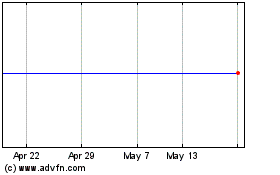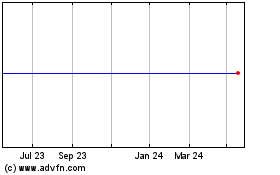During the year ended 31 December 2011 3,137,401 share awards
were granted to the new senior managers out of the Employee Share
Plan, of which 115,377 share awards subject to non-market
conditions relating to the satisfactory performance of the duties
and a three year vesting period and 3,022,024 share awards are not
performance-related but subject to the completion of three year's
service with any dealings prohibited during that period.
As part of a redundancy programme in January 2012 early vesting
was granted in respect of 138,826 restricted shares granted out of
the IPO plan and 353,340 shares granted out of the Employee Share
Plan; additionally 123,012 shares granted out of the Employee Share
Plan were forfeited.
In December 2012 another portion of 369,030 shares granted out
of the IPO plan vested in compliance with the completion of three
years' service by the employees.
Movements in the number of share awards outstanding are as
follows:
As at 31 December
2012 2011
At 1 January 3,948,137 810,736
Granted - 3,137,401
Vested (861,196) -
Forfeited (123,010) -
At 31 December 2,963,931 3,948,137
As of 31 December 2012 and 31 December 2011 there were no
exercisable share awards.
Share awards outstanding at the end of the year have the
following expiry dates:
As at 31 December
2012 2011
December 2012 - 507,856
June 2013 302,880 302,880
June 2014 123,010 369,030
July 2014 2,538,041 2,768,371
2,963,931 3,948,137
The total expense arising from share-based payment transactions
recognised for the period ended 31 December 2012 amounted to
$9,146thousand (2011: $4,178 thousand).
28. COMMITMENTS AND CONTINGENCIES
Capital commitments - The Group has capital commitments
outstanding against major contracts.
As at 31 December
Nature of contract: 2012 2011
$'000 $'000
Road construction 242 320
Well construction 48,413 19,090
Oil reserves development work 6,060 5,341
Pipeline construction 1,729 18
Other 2,821 118
Total 59,265 24,887
Leases - the Group leases three wells and associated land plots
from government agencies in the Russian Federation. The initial
terms on all leases has expired as at 31 December 2011. During the
year ended 31 December 2012 two lease contracts out of three were
extended till 2017 and 2038, respectively. The extension of the
contract for the third well is currently under negotiation. The
lease terms allow for continued lease renewal after expiry of the
initial term. In continuing to use these wells, the Group relies on
Article 621(2) of the Civil Code of the Russian Federation, which
states that such leases are renewed for an indefinite term if the
tenant continues to use the property after the term of the lease
has expired in the absence of objections from the lessor, although
either party is entitled to terminate the lease upon three months'
notice. The Group believes that the Russian authorities are
unlikely to exercise this termination right as the Group has the
exclusive right to extract the oil resources underlying the wells
and continues to make lease payments. Management expects to
continue to pay for the leases until the end of the life of the
reserves, in approximately a range between 2027 and 2038.
The Group also leases apartments for offices at Exillon WS and
Exillon TP. At the present time the annual payments arising on the
leases are approximately $327thousand.
Minimum lease payments were as follows:
As at 31 December
2012 2011
$'000 $'000
Within one year 686 644
Two to five years 1,317 1,402
Later than five
years 4,394 3,856
Total 6,397 5,902
Taxes - Russian tax legislation is subject to varying
interpretations, and changes, which can occur frequently.
Management's interpretation of such legislation as applied to the
transactions and activities of the Group's subsidiaries may be
challenged by the relevant federal authorities. Recent events
within the Russian Federation suggest that the tax authorities may
be taking a more assertive position in their interpretation of the
legislation and assessments in different areas, including general
tax deductibility and tax depreciation rules, transfer pricing
regulations, application of thin capitalisation rules, etc. As a
result, significant additional taxes, penalties and interest may be
assessed. Fiscal periods remain open to review by the authorities
in respect of taxes for three calendar years preceding the year of
review. Under certain circumstances reviews may cover longer
periods.
Combined with a possible increase in tax collection efforts to
respond to budget pressures, the above may lead to an increase in
the level and frequency of scrutiny by the tax authorities. In
particular, it is possible that transactions and activities that
have not been challenged in the past may be challenged. As a
result, significant additional taxes, penalties and interest may be
assessed.
Russian transfer pricing legislation introduced on 1 January
1999 provided the possibility for tax authorities to make transfer
pricing adjustments and impose additional tax liabilities in
respect of all controllable transactions where the transaction
price differs from the market price by more than 20%. Controllable
transactions included: transactions with interdependent parties (as
determined under the Russian Tax Code), all cross-border
transactions (irrespective of whether performed between related or
unrelated parties), transactions where the price applied by a
taxpayer differs by more than 20% from the price applied in similar
transactions by the same taxpayer within a short period of time,
and barter transactions. There was no formal guidance as to how
these rules should be applied in practice. In the past, the
arbitration court has governed practice in this area.
In compliance with the new transfer pricing rules, which have
been enacted in the Russian Federation from 2012, controllable
transactions include export sales exceeding 60 million Roubles
(approximately $2 million) per calendar year and domestic
transactions between related parties exceeding 3 billion
Roubles(approximately $105 million). The rule of 20% difference
between transaction price and market price was abolished. Moreover,
the new methods for determining arm's length prices were introduced
with elaboration of previous pricing methods to harmonise them with
OECD transfer pricing principles. The requirement for formal
reporting of controllable transactions and preparation of
documentation supporting arm's length prices was incorporated.
Currently the impact of these changes cannot be reliably
estimated.
The Group includes companies incorporated outside of the Russian
Federation. Tax liabilities of the Group are determined on the
assumption that these companies are not subject to Russian profits
tax because they do not have a permanent establishment in Russia.
Russian tax laws do not provide detailed rules on taxation of
foreign companies. It is possible that with the evolution of the
interpretation of these rules and the changes in the approach of
the Russian tax authorities, the non-taxable status of some or all
of the foreign companies of the Group in Russia may be challenged.
The impact of any such challenge cannot be reliably estimated;
however, it may be significant to the financial position and/or the
overall operations of the entity.
Mineral extraction tax for crude oil is calculated by
multiplying the extracted quantity of dewatered, desalted and
stabilised oil by the base rate per tonne of crude oil produced and
by the adjustment ratio that reflects changes in the rouble/dollar
exchange rate and the depletion rate of the subject field. In
January 2012 the base rate was increased to Rouble 446 per tonne of
crude oil from Rouble 419 per tonne in 2011. Moreover, a new
coefficient is applicable from1 January 2012 to reflect the amount
of resources for a particular subsoil area.
Export duty is reviewed by the Russian government on a monthly
basis and is based on a formula that takes into account the average
Urals price prevailing in the market between 15th and 15th of the
months prior to the month of delivering the crude oil. In 2011,
export duty was levied at the rate of $29.2 per tonne ($4.0 per
barrel) plus 65% of the difference between Urals price and $182.5
per tonne ($25.0 per barrel). In October 2011 the index of 65% was
decreased to 60%. The impact of these changes cannot be reliably
estimated; however, the increase in mineral extraction tax should
be partially offset by the amendment in the calculation of export
duty.
Environmental matters - The enforcement of environmental
regulation in the Russian Federation is evolving and the
enforcement posture of government authorities is continually being
reconsidered. The Group periodically evaluates its obligations
under environmental regulations. As obligations are determined,
they are recognised immediately. Potential liabilities, which might
arise as a result of changes in existing regulations, civil
litigation or legislation, cannot be estimated but could be
material. In the current enforcement climate under existing
legislation, management believes that there are no significant
liabilities for environmental damage.
Exillon Energy (LSE:EXI)
Historical Stock Chart
From Jun 2024 to Jul 2024

Exillon Energy (LSE:EXI)
Historical Stock Chart
From Jul 2023 to Jul 2024
